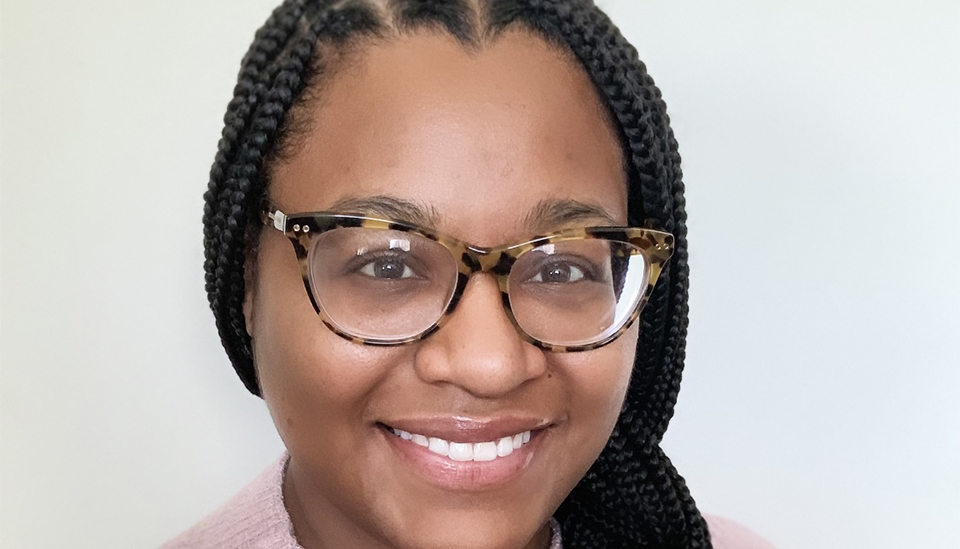
Jessica Forrester, a student in the PhD in STEM Education program, is driven to create more opportunities for equity in math education for underrepresented students. She details what drives her and what resources she’s found to keep motivated during the extreme challenges of 2020.
What is your research focus?
My research interests are definitely multidimensional. First and foremost, I am passionate about culturally relevant mathematics education and its impact on students who traditionally don’t see themselves positively represented in math curriculum. Second, I love highlighting the power within collaborative networks that support student learning, including teachers, families, administrators, community collectives, and more! So often, curriculum and instruction are focused on the interactions in classrooms but there are so many additional factors that must be embraced, including community-engaged work and resources.
What drove you to enroll in the program?
It’s definitely been a journey! Before coming to the University of Minnesota, I completed my B.S. (UVA ’13) and M.S. (VCU ’16) in Biomedical Engineering. Throughout my undergrad and grad programs, I was involved with a few transition programs for underrepresented students in STEM majors. I realized that I could take my experiences with the technical side of STEM, the good and the bad, and combine that with my passion for equity. So I started searching for STEM Education PhD programs.
While deciding on a graduate program, I made sure to look at the current work that faculty members were doing within their departments. Dr. Lesa Clarkson’s math tutoring program, Prepare2Nspire, truly sparked my interests because of the community-engaged approach to math learning. After coming for Recruitment Day and meeting her and other faculty and graduate students, I knew UMN was the right choice.
Were there any surprises and challenges along the way?
Continuing with courses, research, and instructing after the COVID-19 pandemic and the summer 2020 uprisings was definitely a major challenge. It honestly took a lot of soul searching to recenter and determine how to continue on, both personally and professionally. I’m genuinely grateful for the faculty in CEHD who adapted their modes of instruction, other graduate students who listened to my venting, and my friends and family who continued to support my PhD journey.
Although burnout was alive and present, I constantly returned to my career goals as motivation to keep moving and working. The work that we do in STEM education and in Curriculum and Instruction is truly dynamic. Even though this will not be the last set of challenges that we face, I am confident that we will continue to make great strides in education if we genuinely showcase the joy and love that comes with working with youth.
What has been your experience with the faculty?
The faculty within my doctoral program and the College are very supportive and respectful of graduate students’ interests. I’m able to stay true to my goals while also receiving proper coaching and advice. My past experiences in graduate school were very intimidating and I didn’t feel as though the faculty truly cared about students. That is not the case here. I have built relationships with faculty members that I am confident will continue after graduation and I am forever grateful.
Which resources have you found through the program to help with your research?
A major resource is to simply ask questions! The faculty and students in C&I have SO much knowledge and every time I have a conversation about my research interests I always leave with additional literature or organizations that I can look into that will support my research. Graduate students led me to the writing cente; Faculty members introduced me to numerous books and scholars; Community members have given insights on community histories that impact learning. And those all started by asking questions. Don’t be nervous to reach out to different people; my experience thus far has shown that people are able and willing to help.
What do you hope to do after graduation?
I plan to apply to various postdoctoral programs that are dedicated to racial justice and equity in education. Honestly, my time at UMN has gone by so quickly and I’m interested in continuing with research before committing to a tenure-track faculty position. My hope is to slow down, focus, and continue strengthening my research skills in order to hone in on a particular focus. I’ve learned so much while working towards my PhD and I’m excited to combine all the tools I’ve collected to make a true impact in education.
Any other thoughts you want to share about your experience?
There are so many opportunities in CEHD, however, remember to practice self care, balance your academic and personal lives, protect your energy, and “fill your cup”. It sounds very cliché, but you can easily burnout if you don’t take the time to pause and reflect.
Also, apply, apply, apply! Scholarships and fellowships come through my email regularly and if the aims match my own goals, I apply. I don’t always receive the scholarship; however, the opportunity not only puts my name out there, it also allows me to continually practice writing my research goals and personal statement.
Learn more about the PhD in STEM Education program in the Department of Curriculum and Instruction.



